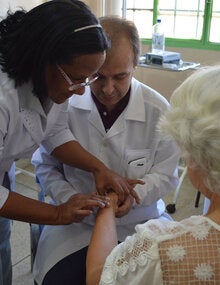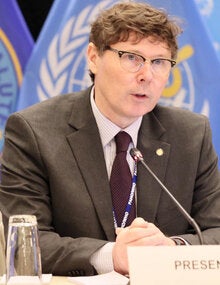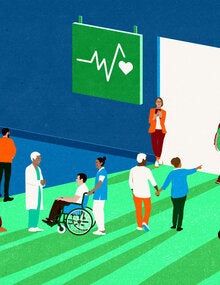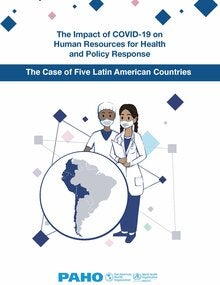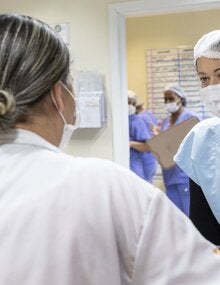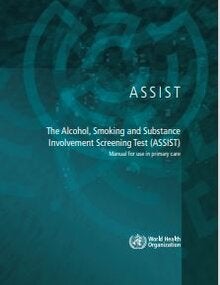SHAA2030 - Goal 3
Sustainable Health Agenda for the Americas 2018-2030

Goal 3: Human Resources for Health
Strengthen the management and development of human resources for health with skills that facilitate a comprehensive approach to health.
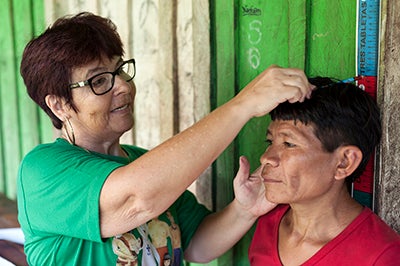
Attainment of the goal requires: a) strengthening and consolidating governance and leadership in human resources for health (HRH); b) developing the conditions and capacity to expand access to health and health coverage with equity and quality; and c) partnering with the education sector to respond to the needs of health systems in the transformation toward universal access to health and universal health coverage. Increased public spending and financial efficiency is needed to foster quality education and employment in order to increase the availability of human resources for health, motivate health teams, and promote retention. The following are key components for this goal:
- comprehensive HRH policies that include planning, recruitment, training, retention, and distribution of health personnel;
- improvement of employment conditions, including adequate remuneration;
- strong HRH information systems to inform planning and decision-making, taking into account the health system approach and possible change scenarios, modeling and forecasting, and performance monitoring;
- partnerships with the education sector at the highest levels to strengthen governance in the planning and regulation of health education;
- policies for mobility and migration of health personnel.
- Ensure adequate availability of a health workforce(1) (44.5 health workers per 10,000 population) that is qualified, culturally and linguistically appropriate, and well distributed (adaptation of SDG target 3.c and PAHO Strategic Plan outcome 4.5).(2)
- Develop HRH policies and intersectoral coordination and collaboration mechanisms between health and education, as well as other social actors, to address the requirements of the health system and the health needs of the population (PAHO Strategy on Human Resources for Universal Health Access and Universal Health Coverage, document CE160/18 [2017]).
- Strengthen the quality of professional health education in collaboration with the education sector, through evaluation systems and the accreditation of training institutions and degree programs(3) (adaptation of the PAHO Strategy on Human Resources for Universal Access to Health, CE160/18 [2017]).
- Develop working conditions that foster the attraction and retention of health personnel, as well as their participation in and commitment to health management, including through collaboration with organizations representing health workers (unions and syndicates) and other social actors (adapted from SDG target 3.c and PAHO Strategic Plan outcome 4.5).
- [1] WHO defines health workers as all those “engaged in action whose primary intent is health” and collates data based on the International Standard Classification of Occupations, excluding some lower-skill cadres (e.g. personal care workers).
- [2] The analysis leading to the 44.5 threshold is available from: http://www.who.int/hrh/resources/health-observer17/en/.
- [3] Standards should prioritize technical and scientific knowledge, together with the social competency criteria of graduates, and the development of contextualized learning programs.

